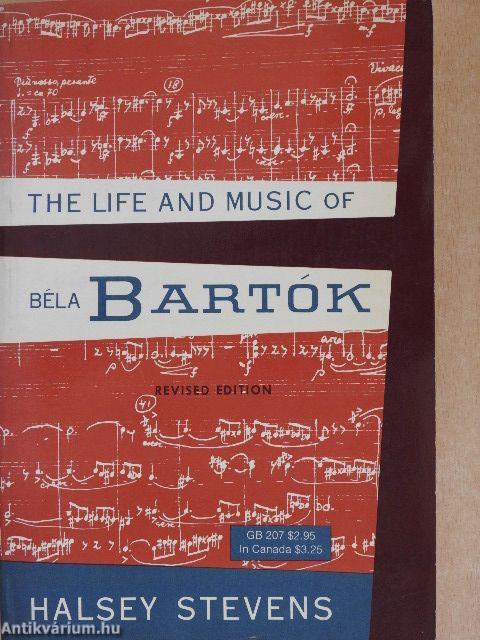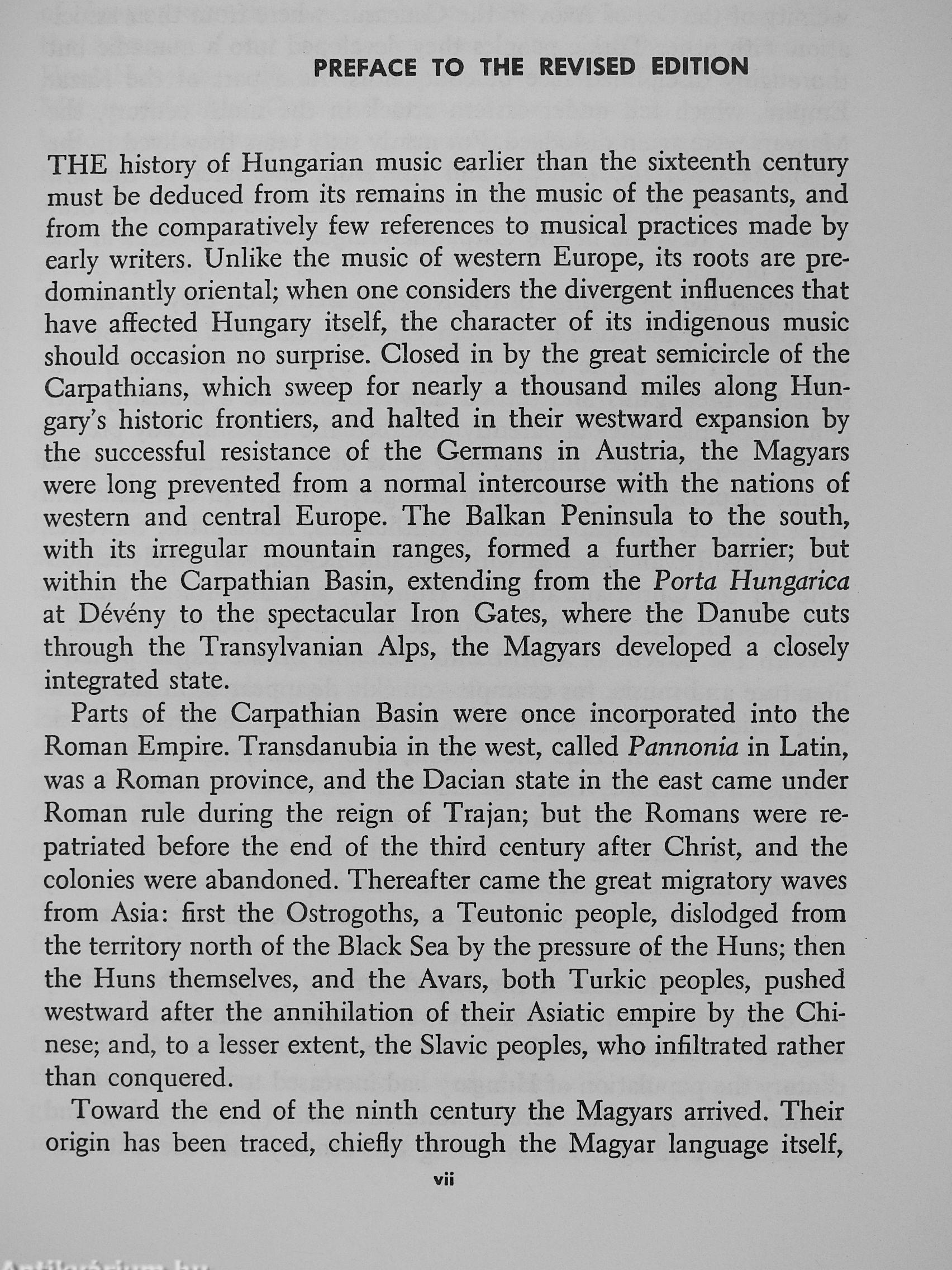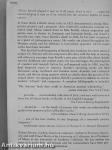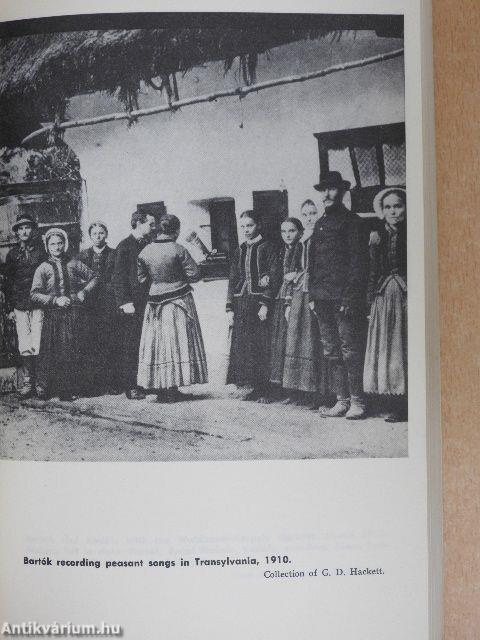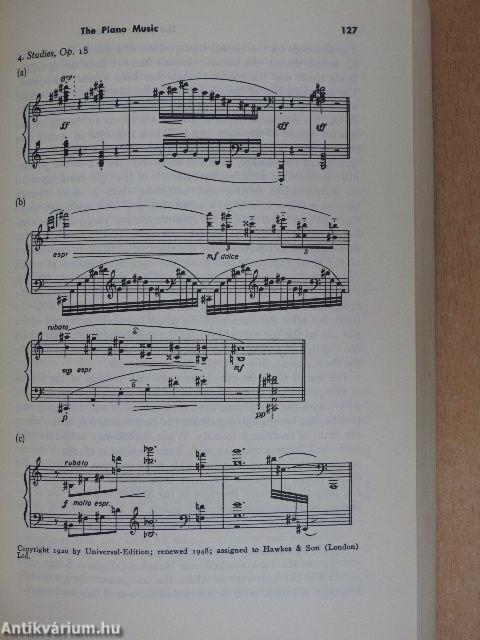1.067.309
kiadvánnyal nyújtjuk Magyarország legnagyobb antikvár könyv-kínálatát

VISSZA
A TETEJÉRE
JAVASLATOKÉszre-
vételek
The Life and Music of Béla Bartók
| Kiadó: | Oxford University Press |
|---|---|
| Kiadás helye: | New York |
| Kiadás éve: | |
| Kötés típusa: | Ragasztott papírkötés |
| Oldalszám: | 364 oldal |
| Sorozatcím: | |
| Kötetszám: | |
| Nyelv: | Angol |
| Méret: | 20 cm x 14 cm |
| ISBN: | 0-19-500754-9 |
| Megjegyzés: | Fekete-fehér képekkel és kotlarésztettekkel. |
naponta értesítjük a beérkező friss
kiadványokról
naponta értesítjük a beérkező friss
kiadványokról
Előszó
TovábbFülszöveg
MUSIC
"When Bartók played it was as if all music lived in him . . . when he ceased playing it was as if he retired into the remotest depths of some cavern . . ."
In these terms a Berlin music critic in 1921 characterized a young Hungarian pianist and composer then relatively unknown outside his native land. Music indeed lived in Béla Bartók, whose originality and genius were to shatter its Germanic and Itahanate bonds, and found a forceful new style. Since Bartók's death in 1945, he has been recognized as a giant of contemporary music. His works are played throughout the Western world, and his influence is everywhere apparent. All his major works have been recorded.
This first full-scale biography of Bartók also examines his entire musical output. Dr. Stevens tells the composer's life story with the help of moving and often wry passages from Bartók's own pen, which offer direct insight into his childhood and student years, his two marriages, the great period of creation and... Tovább
Fülszöveg
MUSIC
"When Bartók played it was as if all music lived in him . . . when he ceased playing it was as if he retired into the remotest depths of some cavern . . ."
In these terms a Berlin music critic in 1921 characterized a young Hungarian pianist and composer then relatively unknown outside his native land. Music indeed lived in Béla Bartók, whose originality and genius were to shatter its Germanic and Itahanate bonds, and found a forceful new style. Since Bartók's death in 1945, he has been recognized as a giant of contemporary music. His works are played throughout the Western world, and his influence is everywhere apparent. All his major works have been recorded.
This first full-scale biography of Bartók also examines his entire musical output. Dr. Stevens tells the composer's life story with the help of moving and often wry passages from Bartók's own pen, which offer direct insight into his childhood and student years, his two marriages, the great period of creation and research before his self-imposed exile in 1940, and his final homesick years in America. Bartók's surviving works are then discussed: songs, keyboard and chamber music, dramatic and orchestral music, and the six string quartets which so clearly show the growth of his unique talent. An epilogue defines Bartók's position in relation to various modern "schools" and composers. A complete bibliography is included.
"Mr. Stevens' book does credit to American musical scholarship."
AARON COPLAND, Nciü Yoj'/c Times
". . . provides an invaluable collection of facts, and may well serve as a basis for all future books on Bartók in the English language."
The Times Literary Supplement
". . . should be in the hands of anyone who wants an understanding guide to the immense riches of Bartók's works."
OTTO GOMBOSI, Music Library Association Notes
". . . one of the best studies, in any language, of a twentieth century composer."
' ¦ wiLHELMiNE CREEL DRIVER, Joumal of Research in Musical Education
Halsey Stevens, leading American composer, studied at Syracuse University and with Ernest Bloch at the University of California; he is Professor of Music at the University of Southern California. He has written for musical journals here and abroad, and his compositions have been performed by major symphony orchestras. Vissza
Témakörök
- Életrajz > Művészet > Zene
- Idegennyelv > Idegennyelvű könyvek > Angol > Művészetek > Művészettörténet, általános
- Idegennyelv > Idegennyelvű könyvek > Angol > Művészetek > Zene
- Művészetek > Zene > Komolyzene > Korszakok > XX. század > Bartók Béla
- Művészetek > Zene > Komolyzene > Életrajzok > Magyar
- Művészetek > Zene > Komolyzene > Zenetörténet > Magyar
- Művészetek > Zene > Komolyzene > Idegen nyelv > Angol
- Művészetek > Művészettörténet általános > Idegen nyelv > Angol
- Művészetek > Művészettörténet általános > Életrajzok > Egyéb
- Idegennyelv > Idegennyelvű könyvek > Angol > Életrajz > Művészet > Egyéb



